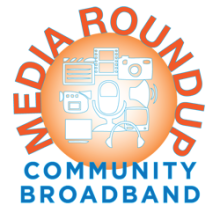
Fast, affordable Internet access for all.

State-by-State Community Network Coverage
Maine
Bangor panel argues state must invest in broadband or fall behind by Nick McCrea, Bangor Daily News
Broadband’s influence on economic development is an “academic marvel, because it’s the only thing that all economists agree on,” according to [Tilson Tech broadband consultant, Aaron] Paul. He argued the infrastructure is “fundamentally cheap,” when compared with investments, such as natural gas connections, because fiber optic cables can be hung on utility poles.
Maryland
Baltimore Broadband Coalition wants your input by Stephen Babcock, Technical.ly
Massachusetts
Colrain eyes broadband options Tuesday by Diane Broncaccio, Recorder
Princeton to seek new broadband partner by Sandy Meindersma, Telegram
North Carolina
Fibrant’s new director: we’re evaluating every portion of the business by David Purtell, Salisbury Post
Ohio
Local officials who want to see improved broadband Internet service in the area pitched their ideas during an information session Monday.
Tennessee
Athens TN to get fiber-optic Internet, thanks to EPB, Times Free Press
Need for speed: city utilities fight to offer internet by Jim Matheny, WBIR
"We are making a profit, we're paying down the loans, and the money we make get reinvested in the network and the community. That is all money that used to leave this town and go to stockholders of private companies without making the service here any better," said Wigington.
EPB looks to next school year for discounted Internet by David Morton, Nooga.com DAVID MORTON
Comcast announces super-fast Internet in Tenn., mum on cost by Erik Schelzig, Associated Press
Comcast brings fiber to city that it sued 7 years ago to stop fiber rollout by Jon Brodkin, Ars Technica
"I'm an EPB customer that had to sit on the sidelines while Comcast sued my city to halt the fiber rollout... I'm glad they lost as it was a total win for the community here," cdclndc told Ars, adding that Comcast has struggled to maintain Chattanooga customers since the EPB rollout. "I have EPB's 1/1Gbps service at home, and to be honest after all the shenanigans [Comcast] pulled here keeping our city tied up in court for the longest time trying to hold onto their monopoly, I wouldn't go back to them on principle alone."
Comcast launching 2-gig broadband to trump Chattanooga's municipal gigabit offering
This isn't the first sign that the evolving U.S. broadband market is forcing Comcast to improve its services. Earlier this month, the ISP announced that it will begin rolling out its 2-gig Gigabit Pro service in Atlanta in May. Just over two months earlier, Google announced that it was bringing its $70, 1-gig Google Fiber service to Atlanta.
West Virginia
Huntington mayor says fiber broadband “a game-changer for economic development” by Marcus Constantino, Charleston Daily Mail
“Do you want to go into a NASCAR race with a Volkswagen Beetle?” Williams said. “The Volkswagen Beetle certainly has a function and it can get people where they want to go, but if you’re going to be competing in the international marketplace, broadband is the interstate of the 21st century. In order for us to compete effectively, we don’t need as much to have an international airport as we need the ability to compete with somebody across the world in China and be able to compete at a speed that belies any other place.”
Other Muni Broadband News
OPINION: The right to high-speed Internet Seth Bailey, CNBC
In short, municipal broadband allows those in rural areas to have high-speed access similar to that offered to residents of urban areas. Which means the quality of their technological lives do not suffer due to their addresses.
FCC's Sohn: Wired Broadband Competition Lacking by John Eggerton, Broadcasting and Cable
Wheeler to Cable: Suck It Up by Alan Breznick, Light Reading
Wheeler urged cable operators to "overcome the temptation to use your predominant position in broadband to protect your traditional cable business." If they don't, he warned, "the Internet will disrupt your existing business model. You can take that to the bank because it has done that to everybody."
That 20 Mbps Broadband Line We Promised? It's Actually 300 Kbps. Enjoy! by Karl Bode, Tech Dirt
Poorly-served towns and cities need the right to craft their own, flexible and customized broadband solutions in cases of market failure -- whether that's a publicly-owned fiber ring or a public/private partnership with somebody like Google. Instead, we've watched as the same telcos that don't even want to serve many of these DSL customers -- pass protectionist law preventing these communities from doing anything about it. We're only just starting to see this logjam starting to break, but it's going to take a lot more work to get many of these broadband black holes out of the grip of mega-ISP apathy.
Iowa
Iowa receives $26.2 million in emergency education relief to expand broadband access, Discover Muscatine
Minnesota
Colorado
Little-known Internet network plans Western Colorado expansion to link students, nonprofits to supercomputers by Tamara Chuang, Colorado Sun
Louisiana
California
Partnerships can close the digital divide by Apoorva Pasricha & Kevin Frazier, GovTech
Colorado
Arizona
Mohave Electric Cooperative moves forward to build fiber optic network in partnership with TWN Communications, Cision PR Newswire
Arkansas
